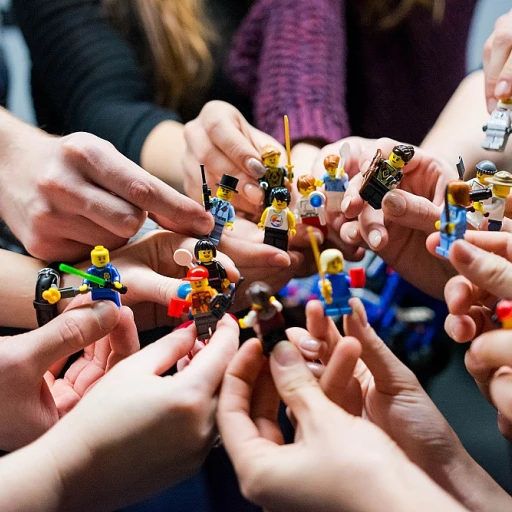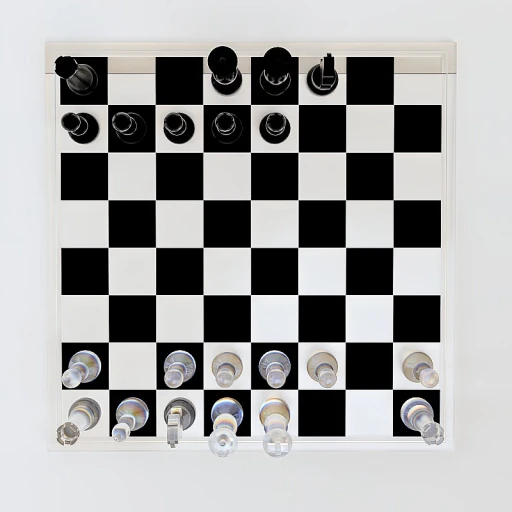
Understanding the Skills Gap
Confronting the Challenge of Skills Gap
The skills gap has emerged as a significant concern in today's fast-paced world, impacting industries and communities in York City and beyond. This gap signifies the disconnect between the skills required by employers and those possessed by individuals seeking jobs. As societal needs evolve and technology advances, the abilities that were once adequate may no longer meet the demands of modern job roles. It’s crucial for students and professionals alike to adapt and embrace new learning opportunities.
For students attending college or high school, the skills gap presents both a challenge and an opportunity. Educational institutions strive to update their curricula and offer experiences that prepare their students for real-world environments. However, as the world advances rapidly, academic programs often struggle to keep pace, leaving gaps in crucial soft skills and cultural competencies that are vital in today’s diverse workplaces.
This growing concern has prompted many individuals to seek alternative ways to learn and develop skills outside traditional settings. Clubs and associations, especially those focused on arts and culture, play a crucial role in addressing the skills gap. They offer platforms where individuals can engage in meaningful activities, fostering communication, teamwork, and adaptability. Involvement in a music or cultural appreciation club, for instance, can provide valuable experiences that extend beyond academic learning.
Furthermore, participation in cultural events organized by student unions or cultural associations can broaden one's perspective and enhance cultural competence. Such clubs often fill the void left by conventional educational structures, providing invaluable hands-on learning experiences. As students and community members come together to participate in these clubs, they not only address the skills gap but also foster a sense of collaboration and understanding across diverse backgrounds.
For more insights on strategies to address skills gaps, explore our article on exploring new paths in learning. This comprehensive approach to education and professional development paints a clearer picture of how cultural engagement can service both personal and community growth goals.
The Role of Cultural Activities Clubs
The Impact of Cultural Engagement on Bridging Skills Gap
Cultural activities clubs play a vital role in addressing the skills gap among students in college settings, like those in bustling York City or small-town campuses. A well-structured culture club or student association ensures that individuals are exposed to diverse backgrounds and cultural perspectives, which can significantly enhance their learning and growth experience.- Understanding Different Cultures: Being involved in cultural events or a cultural appreciation club provides an invaluable opportunity for students to immerse themselves in various cultures. This exposure not only broadens one's worldview but also fosters an appreciation and understanding essential in today's global economy.
- Practical Experience: By participating in cultural activities, students can fill the gap between theoretical knowledge acquired in the classroom and the practical skills needed in real-world scenarios. Whether it's organizing a music event or contributing to a student club's activities, the experience translates into valuable skills.
- Developing Team Skills: Engaging in a student union or association helps individuals hone their teamwork abilities as they collaborate with peers from diverse backgrounds. Such experience is crucial in professional settings where teamwork and communication are highly valued.
Developing Soft Skills Through Cultural Engagement
Growth Through Participation in Cultural Events
Engaging in cultural activities can be a transformative experience for individuals, particularly for students navigating the complex environment of college life. While the primary purpose of joining a cultural activities club might seem to be fun and leisure, the underlying benefits are extensive, especially in developing essential soft skills.
Cultural clubs encompass a wide array of activities, ranging from arts culture events and music appreciation to cultural festivals and debates within the student community. These clubs create an approachable platform where students can't just learn about diverse backgrounds but actively engage with them. This engagement fosters empathy, active listening, and adaptability—skills that are integral in today's dynamic workplaces.
At a college or a school, when students become members of a cultural club, they often take part in organizing and managing events. This exposure offers them the chance to hone their coordination, leadership, and teamwork skills, tackling responsibilities that require planning, communication, and problem-solving. Such experiences complement the academic rigors of a school's curriculum, bridging the gap between theory and practice.
Moreover, being a part of these clubs can help students connect on a deeper level with the local culture of a city, such as the vibrant scene in York City. Through participation, students will increase their engagement with the community, gaining a well-rounded perspective that extends beyond the academia. Attending and organizing events open doors to cultural appreciation, offering students a chance to appreciate different traditions, languages, and histories. This involvement enhances an individual's cultural competence, making them more adaptable in multicultural settings.
In York or any other bustling metropolis, cultural clubs such as Asian American associations or student unions provide a nurturing environment for students to explore and discover new facets of their own identity as well. These interactions encourage learners to become culturally aware citizens, ready to enter a globalized workforce with confidence.
For those interested in exploring the intersection between cultural engagement and skill-building further, resources such as the blog post on bridging the skills gap can provide additional insights and guidance.
Enhancing Cultural Competence
Cultural Intelligence as a Life Skill
Engaging in cultural activities clubs within your school or local community in York City opens a door to enhancing your cultural competence. These clubs, often found in schools or colleges, provide a platform for students from diverse backgrounds to come together and learn from each other. With events such as music appreciation, arts culture showcases, and cultural association fairs, students can immerse themselves in activities that broaden their understanding of different cultures. Participating in a cultural appreciation club is not just about fun and socialization; it's a journey towards becoming more culturally aware and sensitive. By interacting with club members, you gain insights into various traditions, lifestyles, and perspectives. This is particularly beneficial in an increasingly globalized world where cultural intelligence is a prized asset. Joining a culture club enables you to develop a variety of skills that are not traditionally taught in the classroom. These include intercultural communication, empathy, and adaptability. For students and faculty alike, these experiences offer invaluable lessons that go beyond academic achievements. Moreover, the participation in a student union or an Asian American student association can significantly enhance your appreciation for cultural diversity. High school students and college-goers can fill their schedules with enriching cultural events, which will, in turn, elevate their cultural competence quotient. To stay connected and keep abreast of upcoming cultural events, clubs often use platforms like Facebook and Instagram, making it easy for students to engage with the club's activities and objectives. This digital interaction also presents a practical learning avenue in valuing privacy policy adherence and understanding community dynamics. Ultimately, the purpose of these cultural clubs is to foster a dialogue between diverse cultures, promoting an environment where students will learn and grow into culturally competent individuals ready to take on the world's challenges with an informed and open mindset.Networking and Professional Growth
Expanding Your Network for Career Opportunities
In today's interconnected world, the value of networking cannot be overstated. Joining cultural activities clubs in vibrant areas such as York City provides a unique platform for students to not only indulge in their favorite cultural activities but also to expand their professional network. Here's why this is beneficial:- Diverse Interactions: Members of cultural clubs come from various schools, colleges, and universities, representing a wide array of fields and disciplines. This allows you to interact with people from diverse backgrounds, broadening your perspective and network.
- Engagement with Professionals: Many cultural events and activities organized by these clubs invite guest speakers and professionals from related industries, offering students the chance to engage and learn directly from industry experts.
- Opportunities for Professional Growth: Being active in a cultural appreciation club or student association often involves organizing events or leading initiatives. Such activities equip students with leadership and management skills highly valued by employers.
Real-Life Success Stories
Unfolding Success Through Personal Experiences
Cultural activities clubs have become fertile grounds for students and community members seeking to cultivate and showcase their talents. The impact of engagement in a culture club extends beyond leisure time; these activities serve as catalysts for personal and professional growth, as evidenced by numerous real-life success stories. Consider the scenario in a thriving city like York, where students from diverse backgrounds come together, bridging the cultural gap by organizing and participating in a myriad of events. These events often showcase everything from traditional arts and music to contemporary cultural appreciation, fostering an inclusive environment. Members of such clubs have shared their journey toward success, attributing it to the skills gained through active participation and collaboration within the clubs.- Building Confidence and Initiative: Many students who joined cultural appreciation associations reported improved self-confidence. Engaging in club activities like cultural events or arts culture expos requires initiative and public speaking – skills that are highly valued in the professional world.
- Cross-Cultural Communications: Students will find that exposure to multicultural settings encourages an appreciation of varied perspectives. This understanding is vital in today’s global job market where cultural competence is a prized asset.
- Networking Opportunities: A cultural club acts as a hub for networking, not only among students and faculty but also with professionals and alumni. These connections can lead to internships and job placements, as many members have successfully reported.













